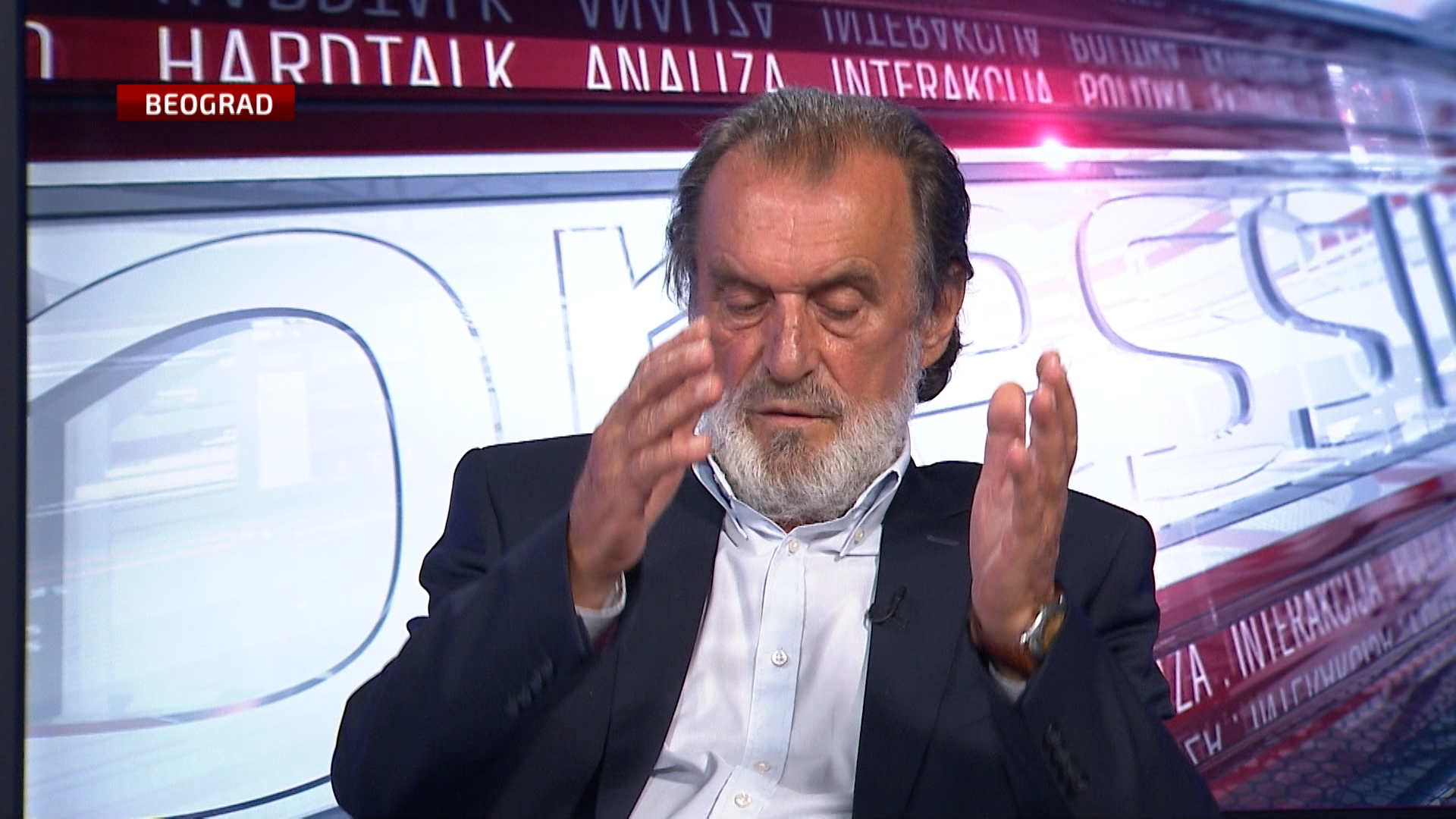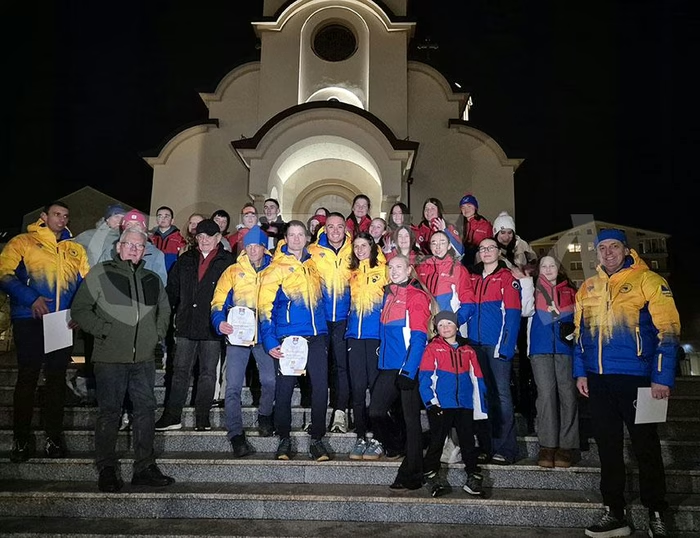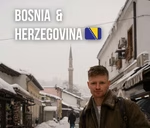Serbia and Montenegro ex FM: Pro-Russian forces behind situation in Montenegro

Pro-Russian forces could be behind Sunday’s forceful inauguration of the new head of the Serbian Orthodox Church (SPC) in Montenegro, which some Montenegrins tried to prevent, seeing it as an attack on the independence of the country that broke away from Serbia in 2006, former Foreign Minister of Serbia and Montenegro, Vuk Draskovic, told N1 on Wednesday.
Draskovic, the leader of the Serbian Renewal Movement, writer and the former Foreign Minister of the now-dissolved joint state of Serbia and Montenegro, said that he was “more than worried” about the recent developments in Montenegro’s city of Cetinje, where the inauguration took place with the blessing of Montenegro’s pro-Serbian government.
“The leadership of the Serbian Orthodox Church and the Montenegrin government wounded and trampled Cetinje, the centuries-old capital of the Montenegrin state, a symbol of freedom, (their) church, culture, independence and spirituality. It won't end there,” Draskovic said.
The new Serbian Orthodox Church Metropolitan for Montenegro, Joanikije, had to be flown to Cetinje via a military helicopter because opponents loyal to Montenegro and its statehood blocked the roads to the city and clashed with police while trying to prevent the ceremony.
Draskovic said that the people of Cetinje can remember “even funerals that were more joyful than the violent helicopter enthronement of a priest who does not even recognize the Montenegrin state and calls Montenegrins mushrooms that will disappear after the rain.”
However, Montenegro did not fall and “the spark of Montenegro’s freedom will engulf entire Montenegro,” Draskovic said, expressing fear of unrest caused by forces that keep denying the country’s statehood, the leadership of the Serbian Orthodox Church and the “pro-Russian parties'' that hold the majority in the parliament. They will not “opt for reason and accept Montenegro’s reality and it’s path toward EU membership,” he said.
Draskovic said he would not describe the Sunday event as a religious enthronement ceremony “because of the way it was done. There was no Christ nor a shred of good intentions” and it was executed against the will of the people of Cetinje and even against the will of the country’s parliament.
Instead of being enthroned in the temple of the Serbian Orthodox Church in Podgorica, the bishop demanded to be enthroned by force, in the Cetinje monastery. “He asked the Montenegrin state to forcibly give him authority and reputation, which he does not have,” Draskovic said.
The former Foreign Minister would not blame Serbia for what happened, but said he would rather put the blame on the “top of the Serbian Orthodox Church,” arguing that “there are a lot of people in Serbia who are outraged by the way this was done.”
“We should all bow our heads in shame, given that in the 21st century, the enthronement of a priest is becoming a No 1 national issue. Where in the civilized world did this happen?” he asked.
Draskovic said he does not believe Belgrade was behind the Cetinje events on Sunday. He argued that pro-government media in Serbia announced the night before that the ceremony will not take place but that that “overnight, some huge pressure was applied from some powerful place, and I don't think that was Belgrade.”
“Even Belgrade itself was probably the target of that pressure. The head of Montenegro’s Government then made a decision to use force and have the ceremony take place in Cetinje the moment he got support from the pro-Russian bloc,” he said.
Despite all this, Montenegro will not become a “Russian satellite,” he stressed.
“They estimated that the West, NATO, the EU are confused and in a state of paralysis and that they should be humiliated with an attack and a hybrid war against a small NATO member in the Balkans,” Draskovic explained. “Look at what is happening after all this, praises are coming from official Moscow, not from Belgrade,” he said.
“Montenegro will survive, considering the very fact that it is under the NATO umbrella. If it wasn't, then we could talk about other scenarios with much more fear,” he said.
Asked whether what has happened in Montenegro could also spill over into Bosnia and Herzegovina, Draskovic said that “there are many crazy people, but I think that this will not be allowed, NATO won’t allow it.”
NATO would move to prevent such an incident “with an intervention in the interest of the protection of the Dayton Peace Agreement and peace in the Balkans,” he argued.
He then commented on his recent statement that the situation in Montenegro reminds him of the “Talibanisation of Orthodoxy.”
"Let's go back for a moment to that video when the patriarch and two priests are literally taken to the monastery from a military helicopter on a meadow. Imagine if this video was broadcast around the world, that it was just a picture of people with beards, surrounded by people with long-barrel firearms. The first conclusion would be ‘this must be them taking some Taliban to prison’,” Draskovic said.
“There are a lot of people who think that what cannons couldn't achieve then, priests can achieve today,” he said.
Draskovic also commented on the term ‘Serb World’, which Serbian Interior Minister, Aleksandar Vulin, has often used recently. Many say that this is just a new term for Greater Serbia.
“Behind that is the intention and goal of going back to the 1990s. Once ‘Greater Serbia’, now ‘Serb World’. What Serb world?” he asked, adding, “I think that there is no way out for us until the leaders of the political Serbs in BiH extend both arms towards the Bosniaks and say that we must live together.”
Serbian President Aleksandar Vucic claims that Vulin’s idea of a ‘Serb World’ is not the official policy of Serbia, but Draskovic argued that, if he was president, “no minister could say something outside of state policy.”
"These are dangerous narratives, the wars of the 1990s started with a narrative,” he stressed.
“I blame people from the EU, the West and NATO for this terrible situation in the region. Today we live in the 30s. These are the 30s of the 20th century. We live in a moment reminiscent of those years of “Appeasement,” he said, referring to the time before WWII when "British and French ministers praised Hitler as the greatest German, and he deceived them and was only interested in the united ‘German world’. He spoke of a peaceful unification without shedding a drop of blood,” he said.
“The West is slow and I think it will only react when it is pushed against the wall. I think that many diplomats don’t know anything (about this place) - they don’t know the Balkans or what is happening here,” Draskovic concluded.
Kakvo je tvoje mišljenje o ovome?
Učestvuj u diskusiji ili pročitaj komentare





 Srbija
Srbija
 Hrvatska
Hrvatska
 Slovenija
Slovenija



























































